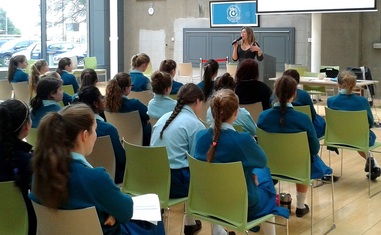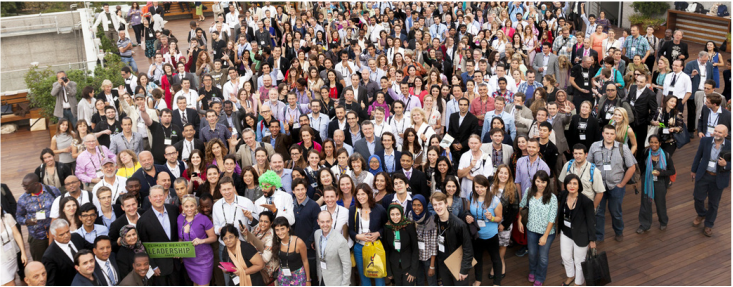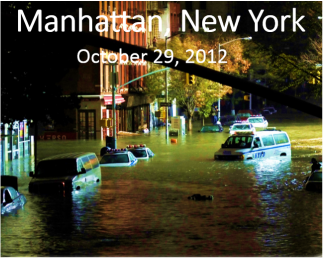 Cara Augustenborg speaking at Mount Anville secondary school, 2015
Cara Augustenborg speaking at Mount Anville secondary school, 2015 - Intergenerational justice: UNICEF describes climate change as a “children’s problem”. We know that the impacts of climate change will affect our children and grandchildren more than it currently impacts us. As adults who have contributed to causing this problem, we have to answer to the next generation for our decisions today and involve young people in the solutions to climate change. This begins by educating them about the issue.
- School children as educators: It’s well known that children can influence their parents’ behaviour with respect to environmental impacts. We’ve seen this demonstrated with recycling where evidence shows that parents of children who are educated on recycling will recycle more than the parents of children who are not educated on the issue. The same idea can be applied to climate change. As parents, we know how much our kids love to tell us when we’re doing something wrong, and we can just imagine how quick they’d be to point out how mom and dad's actions impact climate change if they were informed themselves.
- Young people as future voters: It’s unfortunate that young people have so little say in our policies on climate action because they will be the ones who have to deal with the consequences if we fail to solve the problem. The right to vote is one of the few ways ordinary citizens have to influence policy. I see young people as our country’s future voters who need to be educated on one of the most significant issues facing them when they reach adulthood.
Raising climate change awareness with the Climate Reality project
 Climate Reality Leadership Corp training, Istanbul, 2013
Climate Reality Leadership Corp training, Istanbul, 2013 Over the last year and a half, I’ve presented the Climate Reality talk to over 600 students at seven secondary schools in Ireland. This past Thursday at DCU, I presented preliminary data from the first four schools to help other science communicators improve the way we educate young people about climate change. Below, I describe some of my preliminary findings based on surveys from 237 secondary students (ages 12-18). You can see the slideshow related to my presentation at DCU here.
Knowledge and feelings on climate change
When asked what their strongest feelings about climate change were, students said they felt “concerned”, “powerless”, “worried” and “alarmed” but also “fascinated” and “inquisitive”. While they recognised the serious nature of climate change, they were also curious and interested in the topic.
Climate Reality: How I communicate climate change to teenagers

When students were asked what their favourite part of the talk was, their top answer was the link between weather and climate. This may be due, in part, to some dramatic video footage I present from Al Gore of Hurricane Sandy (2012) with narration from the Governor of New York and President Barack Obama explaining the link between climate change and super storms like Hurricane Sandy. Kids love movies and the excitement of natural disasters, so it’s probably no surprise that this part of my presentation entertains them and sticks in their memory.
The survey generally showed that students responded best to the parts of my talk involving animations and videos and to the personal human interest stories that I bring in to my talk, such as my interview with the Inupiat people in Arctic Alaska.
What’s the impact of communicating climate change to teenagers?
Conclusion: How do we communicate climate change to the next generation?
When we communicate with young people on climate change, it’s important to achieve a balance between educating them on the serious nature of the problem and inspiring them to want to engage more with the issue. We have to ensure that our content doesn't just worry them by focusing solely on the potential impacts that climate change can have. We must emphasise solutions and give them avenues for participating in those solutions as young people.
As I say good bye to students, I always ask them to consider that the next time a political candidate calls to their door, they ask that candidate what they’re doing to help solve climate change. I point out that if that politician is not doing anything about climate change right now, he/she is leaving the problem for the next generation to sort out. If just one student engages with a politician on climate change as a result of my climate talk, it will make all of my efforts to reach out to these precious members of our society worthwhile.
Keep fighting the good fight!
-Cara


 RSS Feed
RSS Feed
